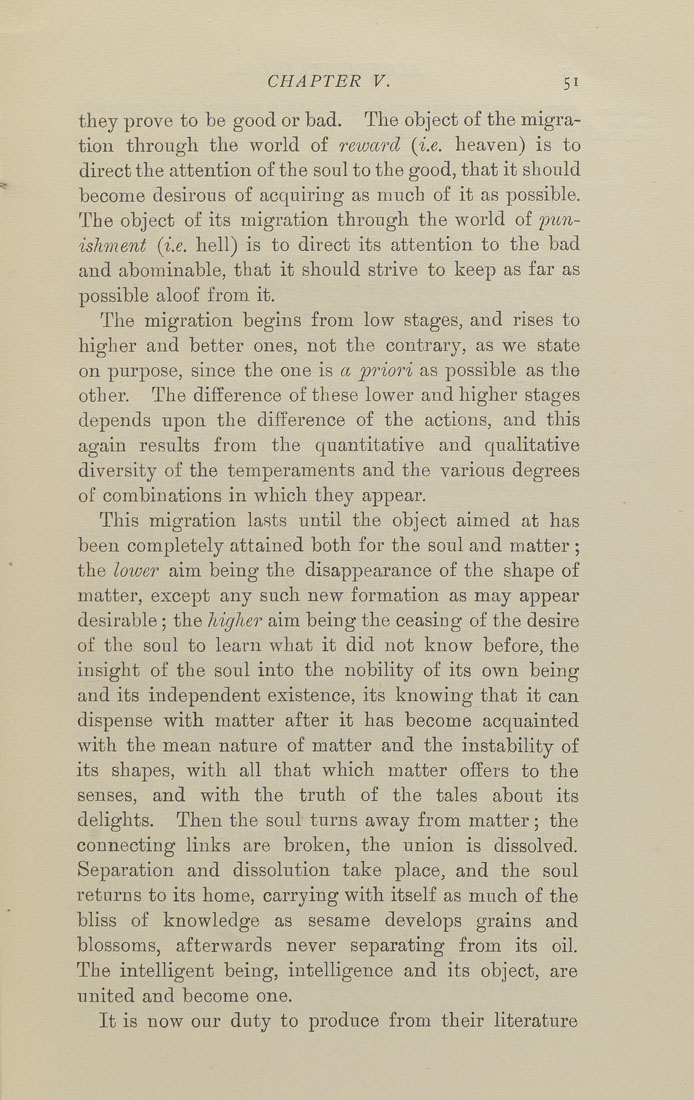Bīrūnī, Muḥammad ibn Aḥmad, Alberuni's India (v. 1)
(London : Kegan Paul, Trench, Trübner & Co., 1910.)
|
||
|
|
|
|
| Page 51 |

CHAPTER V. 51 they prove to be good or bad. The object of the migra¬ tion through the world of reward (i.e. heaven) is to direct the attention of the soul to the good, that it should become desirous of acquiring as much of it as possible. The object of its migration through the world of p^M^- ishment (i.e. hell) is to direct its attention to the bad and abominable, that it should strive to keep as far as possible aloof from it. The migration begins from low stages, and rises to higher and better ones, not the contrary, as we state on purpose, since the one is a priori as possible as the other. The difference of these lower and higher stages depends upon the difference of the actions, and this again results from the quantitative and qualitative diversity of the temperaments and the various degrees of combinations in which they appear. This migration lasts until the object aimed at has been completely attained both for the soul and matter ; the lower aim being the disappearance of the shape of matter, except any such new formation as may appear desirable ; the higher aim being the ceasing of the desire of the soul to learn what it did not know before, the insight of the soul into the nobility of its own being and its independent existence, its knowing that it can dispense with matter after it has become acquainted with the mean nature of matter and the instability of its shapes, with all that which matter offers to the senses, and with the truth of the tales about its delights. Then the soul turns away from matter; the connecting links are broken, the union is dissolved. Separation and dissolution take place, and the soul returns to its home, carrying with itself as much of the bliss of knowledge as sesame develops grains and blossoms, afterwards never separating from its oil. The intelligent being, intelligence and its object, are united and become one. It is now our duty to produce from their literature |
| Page 51 |







